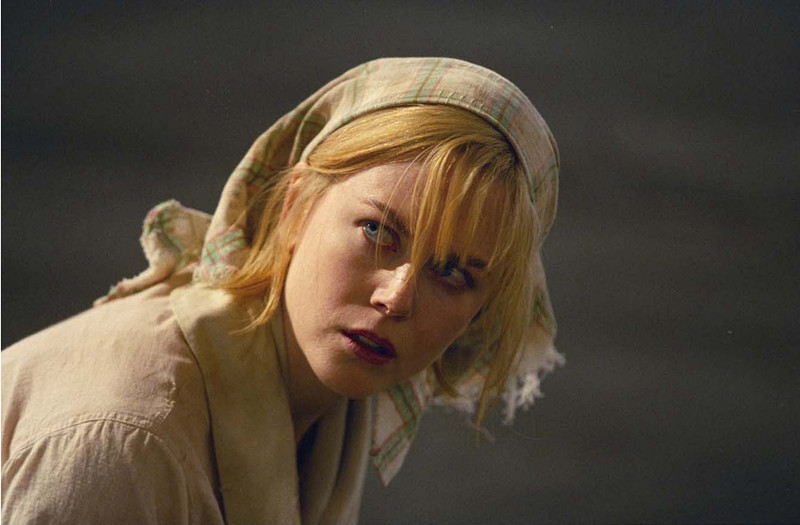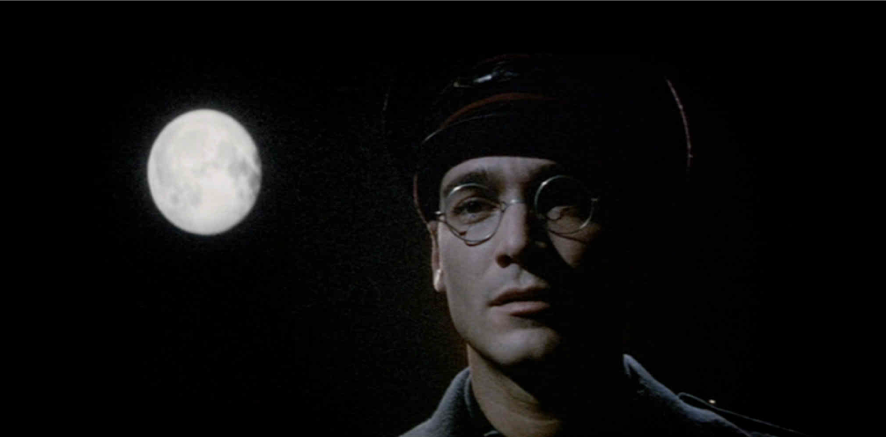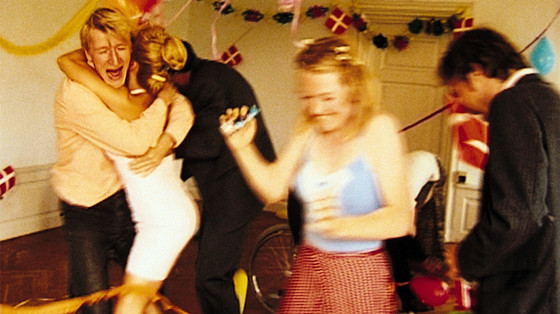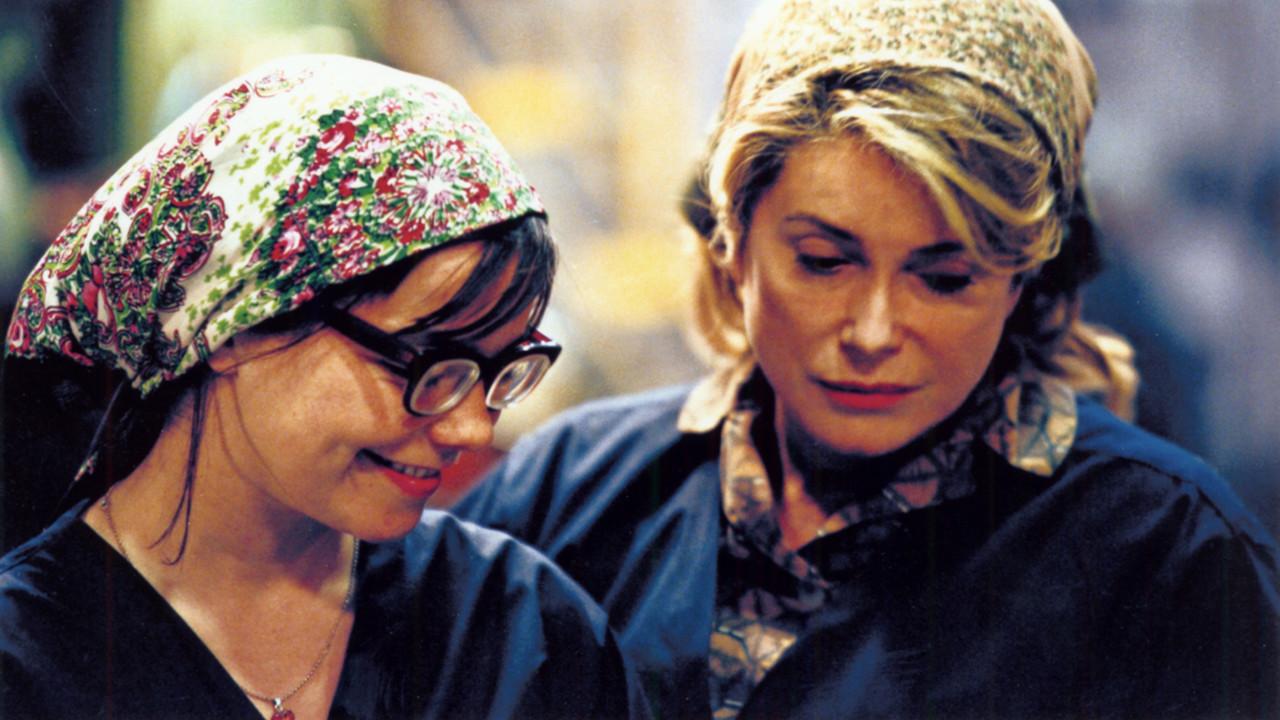
Lars von Trier is a sick man. Lars von Trier is a wicked man. And yet, Lars von Trier is an incredibly talented and thought provoking filmmaker. His works are rough, violent, and graphic, so much so that I can’t really recommend a single one of them to a broad audience (with the exception of Europa).
That said, any real film buff or philosopher should try to stomach a few because of the thoughtful and creative genius that von Trier is. You can always expect something interesting from him and all of his films will leave you shaken to the core in some way.
Von Trier came from a bizarre family. His mother was a communist. His father was a Jewish social democrat. But, that wasn’t actually his father, and his real father turned out to come from a long line of Germans. He was raised by nudists.
Von Trier says that in many ways this background led to his creative capabilities and his personal issues. He suffered from depression and a number of phobias, and converted to Roman Catholicism reportedly in order to cut ties with many of those in his family. That said, the content of his films and the fact that he worked in the pornographic industry cast aspersions on this conversion at best.
1. Europa

One of von Trier’s earlier films, Europa is the fascinating tale of a young American, Leopold Kessler (Jean-Marc Barr), who takes a job in post-WWII Germany working for a railroad company. Because of his nationality and heritage, he gets pulled into some complicated pro-Nazi and pro-American schemes.
Tragically, romance and marriage are thrown into the mix, and Kessler is asked to choose between his wife, his job and life, and his values (which, honestly, are at times a bit unclear).
The story is told in a very creative way, as von Trier tries to make viewers believe they are being hypnotized and that they are actually Leopold Kessler himself. This does make room for a bit more empathy and compassion, but at times Kessler’s indecision and timidity make it too frustrating for viewers to care much about him or his fate.
The central dilemma of the film is between idealism and realism. I don’t think von Trier actually wants us to side with the Nazis, but rather wants us to see how harmful idealism can be from either side and how being a man of such moral idealism can lead to inaction.
Kessler fails to be pragmatic (something I would normally praise) so much so that he often doesn’t act or critique anything that he should. I mean, his idealism is so strong that he came to Germany thinking that working a job there would be the best thing he could do to help the world. Sounds a bit like Hemmingway, if you ask me.
2. Breaking the Waves

Perhaps one of von Trier’s most interesting films, Breaking the Waves is a film about Bess (Emily Watson) and Jan (Stellen Skarsgard), a young couple that get married in a devout Scottish community. Jan works as an oilman and therefore takes long leaves of absence, straining their marriage and Bess’ sanity.
After she prays for his return, Jan is paralyzed in an accident and bedridden in Scotland. Out of some twisted desire of his own, he asks Bess to satisfy her desires with other men and return to tell him about her conquests.
Of course, this is a recipe for disaster in such a deeply religious area. Moreover, Bess becomes convinced that her actions affect Jan’s improvement. Thanks to this delusion, she makes a decision to save Jan’s soul (and not hers), and ultimately gives her life for Jan.
Complex and truly well made, the film is meant to do several things. One of its major goals is to call into question faith and especially misguided fundamentalism, which leads to several bad situations and broken relationships.
It also questions the nature of life, and even tries to get its viewers to speculate what makes life worth living. In addition to these goals, it succeeds in questioning what makes a relationship and marriage, and it tries to break down the societal norms surrounding monogamy by exaggerating the influence of religious fervor in their construction.
However, I think its best accomplishment is in questioning the nature of causality and dialectics of faith, and in this sense any viewer skeptical enough to have read basic Hume can see that the film leverages a straw man of Christianity in order to make its progressive and subversive points. Basically, it cheats.
All while demonstrating beautiful camerawork and an impressive score (it’s hard to complain about any film that features A Whiter Shade of Pale) and incredible performances from Emily and Stellen. Of the von Trier films, this one is perhaps the most worth the time if you can stomach some violence and adult content.
3. The Idiots

Another dark von Trier original, The Idiots is about a true group of idiots who pretend to be handicapped (mentally and sometimes physically) in order to escape from society and their personal problems.
Therefore, I think it’s safe to say that this sort of idiotic escapism is not something new or peculiar to my generation of millennials. A middle-aged woman named Karen (Bodil Jorgensen) falls in with this group of young adults at a restaurant and then joins them in their escapades.
At first, she is the conscientious objector, pointing out that there are people who truly are handicapped and that these people would be offended by the fact that a group of fully capable and intelligent young adults are spending their time living as idiots. Soon she succumbs to their antics, and begins to pretend to be challenged herself.
Before too long, the real world catches up with her friends, and they all turn their back on their experimental rebellion to return to their lives. She refuses and returns to her family to pretend to be handicapped, and it is there that we learn the true tragedy of her past.
Von Trier does a good job capturing the idiocy of these sorts of classist rebellions. In the film, we see a group “finding their inner idiot” and using it as an act of rebellion against the bourgeoisie.
However, they are only able to find the time to do this because they themselves belong to an upper class, at least one above the overworked proletariat, and they therefore put the horse before the cart.
Meanwhile Karen, a disturbed and impressionable woman (just like Bess in Breaking the Waves), finds an outlet of escapism in their acting. Ultimately, she is looking for an escape from psychological trauma. However, even this desire is caused by the mortality of mankind and her desire to escape from it.
Thus, Karen pretends to be handicapped and she does it as an act of rebellious inauthenticity. Given the tone and feeling of the end of the film, I can’t say that this is something von Trier promotes. Still, I think the same point could be wade in dozens of classier and cleaner ways than those to which The Idiots resort.
4. Dancer in the Dark

Yet another dark and tragic film, Dancer in the Dark follows Selma (Bjork), an immigrant to the US who works hard in a dangerous factory and suffers from some sort of degenerative and blinding eye disease. She escapes the bleak nature of this daily grind by watching Hollywood musicals and daydreaming of being a star.
We see this in several depressing outbursts in which she gaily dances and sings and seems to forget the world around her. Over the past few years, she has saved every bit of cash she could scrape together to pay for an operation for her lone son, which will theoretically spare him of the same fate.
Through a horrific series of events, she loses her job, home, and savings because she has been too trusting of others and has daydreamed several key moments away. Ultimately, she must go on trial for murder and, as one can imagine, the trial of a confused and disabled immigrant goes about as poorly as possible, leaving Selma to face the great unknown.
Von Trier paints a compelling image of what it can be like for the lower classes and immigrants. He does an incredible job showing just how easily these people can be taken advantage of and how little legal recourse they may have in bad situations. Selma has little to no chance of ever escaping the poverty she’s in or of helping her child to escape the disadvantages he was born with.
And yet, Selma is very optimistic and grateful for the opportunities she has been blessed with. Clearly, the entire system is much more complicated than ideologues on the news like to make it out to be. It’s hard to completely ascribe the Marxist false consciousness to Selma, and yet it’s hard to say she’s capable of fully grasping her situation.
What is easier to do is to see that the system is broken and to try to come together and find a solution. I’m not so sure that’s what von Trier wants, but I am sure that’s what needs to happen and that his film is a good prompting for action.